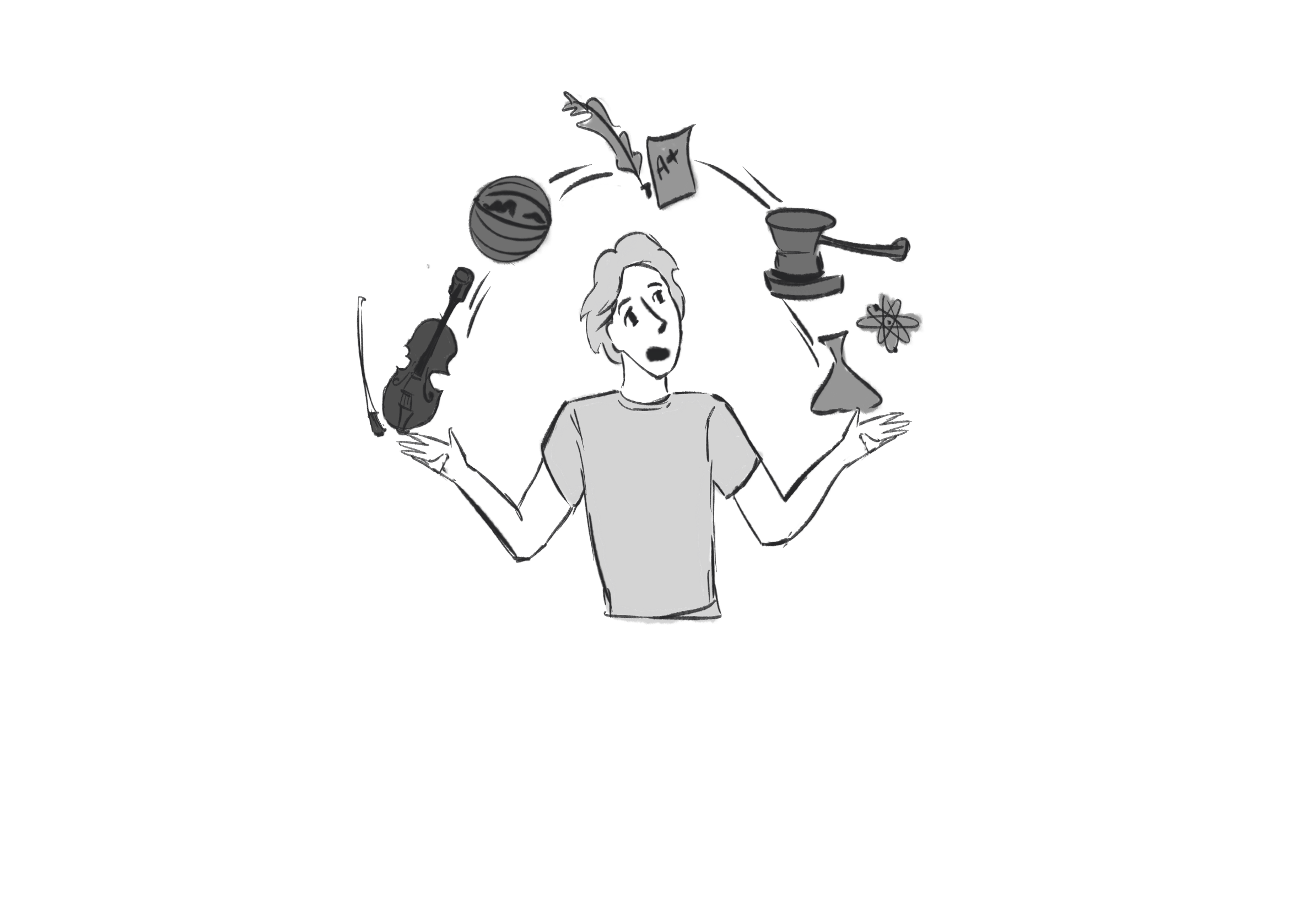The pursuit of roundness
September, 2024
Graphic: Charley Hu
At the Club Fair this October, we will be bombarded with hundreds of different clubs to join. Our parents, teachers, guidance counselors, and fellow students will tell us that the way to make ourselves more interesting is to join the perfect variety of these clubs, sports, and community service programs.
This process is deceptively complicated. Of course, we can’t spend all day playing soccer or studying chemistry. That would be too narrow-minded, not well-rounded enough. However, if we join too many activities — a sport, a couple clubs, and volunteering — that’s also not good enough. In that case, our efforts are said to lack focus and direction, and come off as half-hearted.
To “help” us navigate this process, incredibly prescriptive geometric analogies, like “spikey” or “T shaped,” have been developed. Ingenius Prep, a college admissions support group, has articles with titles as ridiculous as “Well-Rounded vs Pointed Students: Is It Better to be Egg-Shaped?”
Clichés are surprisingly accurate in describing the dilemma between doing too much and doing too little. There’s the classic saying of being a “jack of all trades”, which was intended as a compliment until it was combined with “... and master of none” in the late 1700s. Well-rounded people can both be praised as one “who wears many hats” and criticized for being “a mile wide and an inch deep.”
When well-roundedness is defined in this way — solely by the assortment of someone’s interests — the results are horribly superficial. A scientist who enjoys music is considered perfectly well rounded and interesting, but if they join a couple too many activities they are suddenly scattered. Actors who spend most of their time on the stage are shallow, even if the way that they approach their acting varies widely from play to play.
To achieve a more nuanced picture, we should adjust the standards of well-roundedness. Instead of a reflection of the types of activities we do, a true measure of sophistication would be a reflection of the way in which we approach them.
There is little point in forcing someone who naturally enjoys something to spend less time on their passion and join activities they don’t care for as much. Of course, entering new kinds of activities sometimes leads to exploration and self-discovery, but that can just as easily be done in one discipline as in many. Even by only focusing on music, a student at PHS could develop teamwork and leadership in band or orchestra, could use their creativity in discovering their personal interpretation, and could volunteer mentoring younger musicians.
There is little point in forcing someone who naturally enjoys something to spend less time on their passion.
Moreover, a student who does many things isn’t necessarily developing unique perspectives. They could simply approach two different things they do in a very similar way. It’s certainly easier for high schoolers to let themselves be defined with labels such as “STEM” and “humanities.” It’s not complicated for ourselves, and easy for others to understand. But reframing “wellrounded” from a focus on a variety of activities we do to an emphasis on how we pursue them will release the pressure we feel to find some arbitrary “perfect” combination.